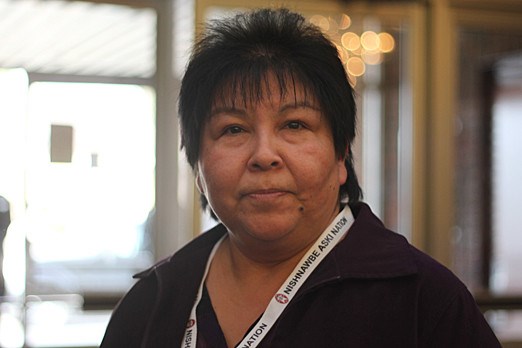THUNDER BAY -- With less money coming from the federal government, Margaret Kenequanash says they need to figure out how they will fill the void when the cuts arrive.
Kenequanash, executive director for Shibogama First Nation Council, said the federal government will be cutting about 60 per cent of their core funding by the Spring of 2014.
The major areas being cut include governance and community development. She said they will have to look at doing an economic impact assessment to find out how they can still provide services to the various communities with a decreased in budget.
“It’s an attempt to save money,” Kenequanash said. “It means we’ll possibly have to lay off staff and look at key areas where the main cuts are being felt within the tribal councils.
"We may have to lay off nine positions. There’s really no thought being put in place on what the impacts are going to be say to local municipalities and cities never mind the impacts of the community levels.”
Kenequanash said they weren’t initially informed about the cuts and it wasn’t until she was contacted by a spokesperson from the Ministry of Aboriginal Affairs that she even knew she was supposed to have received notice.
She called the whole process improper and criticized the letter she did receive as being ambiguous.
The government made the announcement that core funding for First Nation organizations would be cut and capped at $500,000 in September.
Nishnawbe Aski Nation receives core and project funding from the federal government and received more than $10 million for 2010-2011.
The core funding only made up about 25 per cent of what NAN received.
NAN Grand Chief Harvey Yesno said he’s disappointed that their funding is being capped because he felt that the organization has been efficient with its finances in delivering services to 49 communities.
“We need to carry on,” Yesno said. “We’ll just have to make adjustments. It’s unfortunate that things like that happen. The need is great within the communities. It’s just going to make it tougher to deal with issues on behalf of the communities especially the remote ones.”
Yesno said the cost to travel to those remote communities could eat up a large portion of NAN’s budget. A flight from Thunder Bay to Attawapiskat and back could set back the organization $2,500.
He added that the cuts will mean they will have to look at laying off a number of people because they cannot sustain those jobs.
But the cuts won’t just affect First Nations.
Yesno said city’s like Thunder Bay will also be impacted.
“Tribal councils and NAN are the ones who organize events,” he said.
“It’s not just chief meetings. With less resources there’s going to be less renting of rooms here in Thunder Bay, buying food and shopping. That’s why we’re trying to partner with other organizations.”
